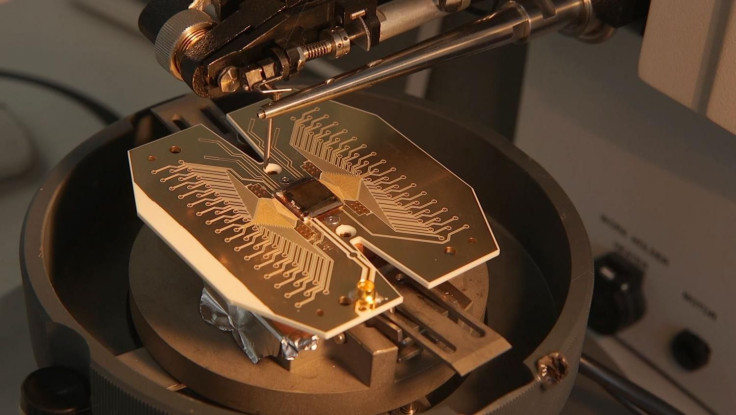Quantum Technology Can Make Blockchain Security Vulnerable, Researchers Say

Blockchain is generally portrayed as being one of the most secure technologies, but researchers warn that quantum technology could create a security vulnerability for blockchain technology.
Researchers from the Russian Quantum Center (RQC), Moscow, focused on "one-way" function that is used to secure blockchains, and said this function could be disrupted if and when quantum technology will be fully developed. They claimed that quantum technology would soon have the ability to "make blockchains vulnerable."
The one-way function is used to create digital signatures that blockchain users apply to verify themselves to others. The history of the transactions that are recorded on the blockchain is also validated using the one-way function. This function is essentially used to secure transactions made over a blockchain.
The article by RQC researchers said blockchain security relies on one-way mathematical functions. Data is usually encrypted using one-way functions, an operation used to combine two inputs which are difficult to untangle. This function is straightforward to run on a conventional computer and calculating it in reverse is difficult, hence the name one-way.
"For example, multiplying two large prime numbers is easy, but finding the prime factors of a given product is hard — it can take a conventional computer many years to solve," said the authors of the paper, published Monday on the website of science journal Nature.
The researchers claim that "within ten years", quantum computers would be able to calculate the one-way functions, and could also be able to reverse them, which would, in turn, disrupt several computational processes, including blockchains.
"Widely deployed one-way encryption will instantly become obsolete," claimed the authors.
Quantum technology or quantum computers pose a risk to any kind of security where public key cryptography is employed. Blockchains are especially are at risk, according to the RQC researchers, because they’re entirely anonymous.
“A blockchain is particularly at risk from this because one-way functions are its sole line of defense — a user’s only protection is their digital signature, whereas bank clients are protected by plastic cards, security questions, identity checks, and human cashiers,” said the authors Aleksey K. Fedorov, quantum information-technology group leader at RQC, Evgeniy O. Kiktenko, a research fellow there, and Alexander I. Lvovsky, who leads the quantum-optics group at RQC.
Quantum computers and related technology are still in their early days, and not yet mature enough to threaten classic cryptography, according to Nick Farina, CEO of quantum computing startup EeroQ Quantum Hardware.
“Much like today’s [quantum computing] hardware is not mature, algorithms that could threaten cryptography in the near term are not mature, but advancing rapidly. The solution is not to panic, but to follow developments on both sides of quantum computing closely and look into post-quantum security a little bit sooner than you currently are planning to," Nick Farina told Gizmodo.
© Copyright IBTimes 2024. All rights reserved.





















